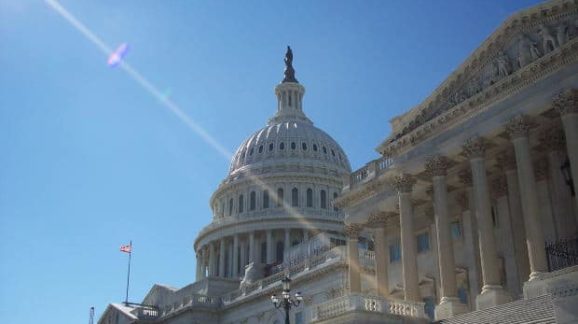Export-Import Bank Fight Not Over Yet

 The Export-Import Bank’s charter is currently set to expire on September 30. If authorization lapses, the agency will shut down. On Thursday, the House passed a continuing resolution (CR) to fund the government through November 21—specifically including Ex-Im. The Senate will likely pass it next week. This means the Ex-Im fight could drag on for an additional seven weeks, and possibly longer. Here is a breakdown of the current situation.
The Export-Import Bank’s charter is currently set to expire on September 30. If authorization lapses, the agency will shut down. On Thursday, the House passed a continuing resolution (CR) to fund the government through November 21—specifically including Ex-Im. The Senate will likely pass it next week. This means the Ex-Im fight could drag on for an additional seven weeks, and possibly longer. Here is a breakdown of the current situation.
The most likely reauthorization vehicle is a bill from Sens. Kevin Cramer (R-ND) and Kyrsten Sinema (D-AZ). It contains no positive changes and several bad ones. It would do away with board approval for large projects, increase Ex-Im’s portfolio cap to $175 billion, and would last for ten years, more than double the usual period. It would mainly benefit large companies like Boeing and Caterpillar that don’t need help, plus large state-owned enterprises such as China Air.
Because the bill is so tilted against reform, it would likely have difficulty making it through the standard legislative process without significant amendments. So while an up-or-down vote on the merits is possible, Ex-Im backers will avoid one if they can. The easiest way is to fold the bill into some other piece of must-pass legislation. That way, even Ex-Im opponents will still have to vote to renew Ex-Im on Cramer-Sinema’s terms, possibly without amendment.
The continuing resolution that passed the House yesterday is clean, in that its only Ex-Im language is extending it through November 21. It does not contain Cramer-Sinema or any of its provisions. This will likely remain the case when the Senate takes it up next week.
But—when November 21 approaches, Congress might well punt again and pass a second CR that goes until early next year. If Congress does not separately pass Cramer-Sinema by then, another Ex-Im extension is likely. Maybe it would be another clean extension until CR round 3 (and possibly beyond). Or someone could add in Cramer-Sinema to the bill text.
This complicates matters for reformers. The current 43-page CR was introduced on Wednesday night after working hours, and passed by the House the very next day. If congressional leadership pulls similar last-minute shenanigans with the next CR, Ex-Im reformers will need to have amendments ready in advance to the extent possible. Section numbers and such for amendments to refer to can only be accurately identified once the final text is available, so there would still be plenty of late-night work for reform-minded staffers.
This dynamic could repeat for any number of rounds until Congress can finally pass a budget—and even this budget could be a vehicle for Cramer-Sinema or another Ex-Im bill. Reformers’ job until then is to be both patient and persistent. There might be no rest for the wicked, but the same goes for those of us who oppose cronyism.
For positive reforms for Ex-Im, see my recent paper “How the Ex-Im Bank Enables Cronyism and Wastes Taxpayer Money.” For reasons to shut down Ex-Im entirely, see this paper from Ex-Im’s previous reauthorization fight.